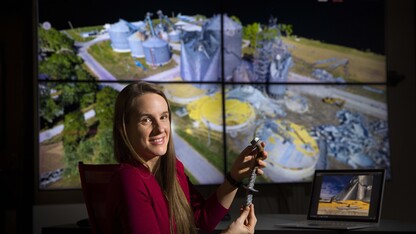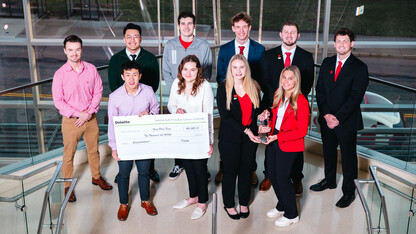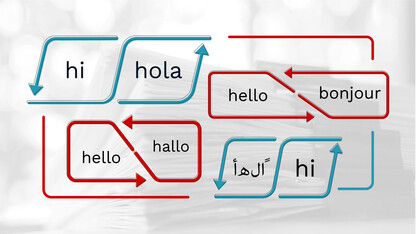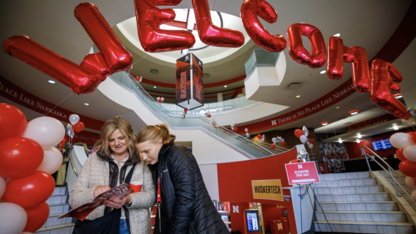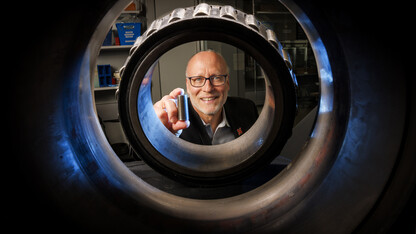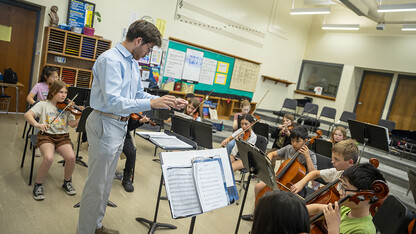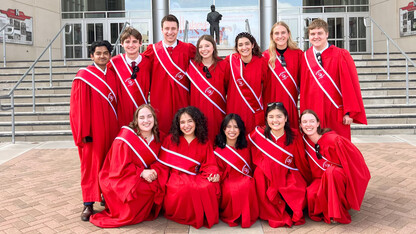· 3 min read
Undergrad pursues research with German fellowship
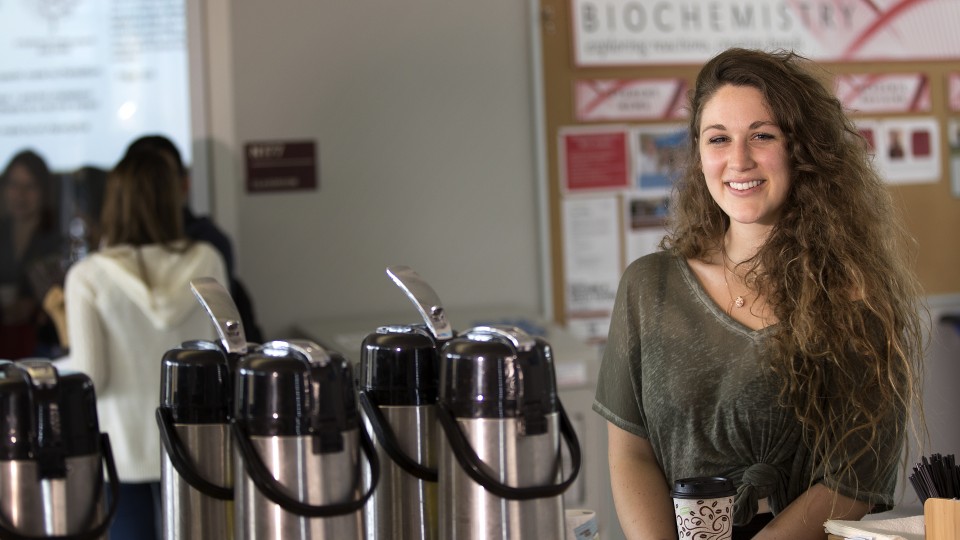
Sierra Hansen is thankful that some things are universal across cultures and countries. Two in particular: coffee and science.
The senior from Omaha starts nearly every day at the University of Nebraska-Lincoln at the coffee bar in the Beadle Center before settling into her work in Mark Wilson’s lab studying proteins that play a role in the etiology of Parkinson’s Disease.
While completing a fellowship at Albert-Ludwig University in Freiburg, Germany, this summer, the triple major in biochemistry, microbiology and Spanish started each day with coffee and a hike before work days in a Biological Signaling Studies lab, under the direction of Carola Hunte.
“I had never done an internship overseas, and it was a ‘wow’ experience being thrown into a job where you are trying to figure things out in a foreign country where you don’t know the language,” Hansen said.
Hansen was selected for the highly competitive fellowship through the German Academic Exchange Service’s Research Internships in Science and Engineering program, similar to the United States’ Fulbright program. The program aims to create goodwill and professional relationships between Germany and North America.
Hansen worked in the Freiburg lab running experiments on the protein called NHE-1 for 10 weeks alongside colleagues from Germany, Taiwan and France – an eye-opening experience in how the lab differed, but also was similar to, her lab in Nebraska. Hansen explained that the NHE-1 protein helps maintain normal homeostasis in the cell and is implicated in several disease states.
“I’ve always loved exploring new cultures and it was a great experience to see how different cultures can impact lab dynamics, but it’s also been really cool to see how these labs are consistent,” Hansen said, including the complexities of experiment protocol and the constant troubleshooting that must be done when experiments fail.
Hansen said the fellowship in Germany was an important extension on past biophysical research as she works toward pursuing an MD/PhD dual degree. Hansen started her undergraduate research career as a UCARE freshman in the Wilson lab and that fueled her passion for biophysical work.
She was chosen as a Beckman Scholar her freshman year and has used school breaks over the holidays and summers to conduct research under mentors at the University of Nebraska Medical Center. Through the university’s National and International Fellowship University Honors Program, Hansen worked to apply for the RISE program.
Each experience has cemented her desire to continue research in some form, she said.
“I really want to pursue a career in academic medicine,” Hansen said. “I see myself as a physician scientist. I’d love to find a way to combine clinical care with active research, ideally translational research that is easier to take from bench to bedside, as they say. And based on this experience, I would love to do more research abroad or have some international component to my work.”
